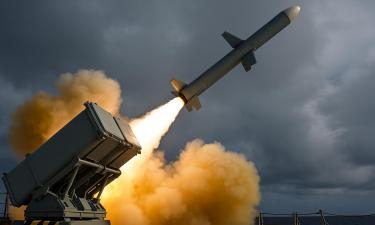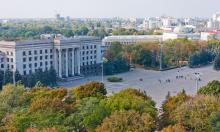A Foreign Legion for Russia
Russian President Vladimir Putin has signed a package of legislative amendments creating the legal foundations for CIS citizens to serve in the Russian army on a contract basis
This opportunity will be offered to people aged 18-30 from CIS countries as early as January 1, 2004, when the Russian armed forces move on from an experiment in the 76th airborne division to full-scale professional enlistment. The military believe that the appearance of foreigners in the army and navy will help to fill more quickly the 147,578 vacancies that are to be taken up in permanently combat ready units before 2008.
 Admittedly, it is still not clear which units foreigners will join and how they will serve there. Nor has a decision been taken on whether they will be recruited to permanent readiness combat units or they will form separate units. In the latter case, Russia could have its very own foreign legion.
Admittedly, it is still not clear which units foreigners will join and how they will serve there. Nor has a decision been taken on whether they will be recruited to permanent readiness combat units or they will form separate units. In the latter case, Russia could have its very own foreign legion.
The military high command is currently considering the issue. On the one hand, it is not quite clear what "national or international units" will look like. Although such military units existed in the USSR during the Civil War and WWII, the experience of controlling them has long been lost. On the other hand, there are concerns that the appearance of CIS citizens in line units will aggravate the hazing in the army, thereby creating a problem of "national groups" which will start conflicts between themselves and Russians. No one wants this headache.
The situation is also complicated by the fact that no one can yet say for sure how many young CIS citizens will want to join the Russian army. In the opinion of Colonel-General Vasily Smirnov, head of the Main Organisation-Mobilisation Department of the General Staff, there will be from 1,000 to 1,500 candidates at the beginning, i.e. not very many. Moreover, any candidate will have to prove his desire to serve Russia and produce documents confirming the legality of his presence on Russian soil (a migration card). He must also have a spotless reputation (no conflicts with the law, or bad habits such as alcohol or drug addiction), a knowledge of the Russian language, be in good health and have finished at least a secondary or special secondary school. The would-be soldier also has to be prepared to sign a contract with the unit commander for three years.
After that, a conscientious and diligent soldier may obtain Russian citizenship through a simplified procedure, the opportunity to enter a higher school on a free quota and receive the full social package for a Russian citizen - medical insurance, a foreign travel passport, and the right to work and live wherever he wants. While serving in the Russian army, foreigners will get appointment pay and grade allowances equal to the basic pay of Russian citizens holding the same military positions. A private will earn 4,000 to 4,500 rubles plus a monthly travel allowance to go on leave - 150 rubles, 50 rubles for medical treatment in sanatoriums and resorts, and compensation for renting housing if the military unit does not provide a hostel with all the modern conveniences. A sergeant receives the same social package and appointment pay. It exceeds a soldier's appointment pay at least by 1,000-1,500 rubles.
However, will such appointment pay suit CIS citizens? Will the social and legal conditions offered be attractive to them? Optimists in the Defence Ministry do not doubt that there will be more than enough men willing to serve Russia for $100-150. This is a large sum for Tajikistan, Uzbekistan, Kazakhstan, Kyrgyzstan and even Georgia and Armenia; however, for Ukraine and Belarus - this is not very much. Ukrainians and Belarussians earn more money working on construction sites in Moscow and outside it, or as trolley-bus and tram drivers. Admittedly, no one is promising them Russian citizenship for their selfless work, though.
Pessimists hint that emigrants from Central Asia and the Caucasus, with the exception of, perhaps, Armenia, do not make good soldiers. It is hard to say whether their combat qualities will satisfy Russian officers. Apart from that, there is also a legal aspect. The criminal codes of such countries as Ukraine and Belarus contain articles on mercenaries. Incidentally, the Russian Criminal Code also has such articles. Service in the army of a foreign state, or participation in combat actions on the side of another state, may be qualified as an act subject to prosecution. Consequently, for three years, a soldier may not go home even on leave until he gets a Russian passport, because as soon as he passes the border of his own state, he runs the risk of being arrested.
Meanwhile, there is still no international-legal clarification of foreigners' right to serve in the Russian army. Neither President Leonid Kuchma, nor his Belarussian counterpart Alexander Lukashenko, or their parliaments for that matter, are enthusiastic about the prospect of seeing their citizens off to the Russian army. Russia has not yet come to an agreement either with them or their administrations.
Accordingly, the Russian Defence Ministry is currently proceeding from realistic, practical considerations: thanks to the current legislative amendments to the law on citizenship, and on military duty and military service, Russia has no problems manning military bases in CIS countries with privates and sergeants. These include bases in Georgia, Armenia, Tajikistan, Kyrgyzstan, Azerbaijan and Kazakhstan. It is an open secret that, in the past, Russian-speaking residents of these countries and often just Russians who for some reason decided to stay in these states, served as non-commissioned officers, especially in the 201st mechanised-infantry division in Tajikistan, in Batumi and Akhalkalaki, in the Border-Guards Troops in Armenia, Tajikistan and Kyrgyzstan. They willingly joined the Russian army because they were unemployed and faced discrimination every day, whereas there were no such problems in Russian military units. Apart from that, the basic pay of a private of the 201st mechanised-infantry division was much higher than that of a Tajik army colonel and enabled a soldier to provide for his family and parents.
Whether these terms will still be true of life in the Russian army next year, we shall have to wait and see.
Viktor Litovkin, RIAN
Subscribe to Pravda.Ru Telegram channel, Facebook, RSS!




